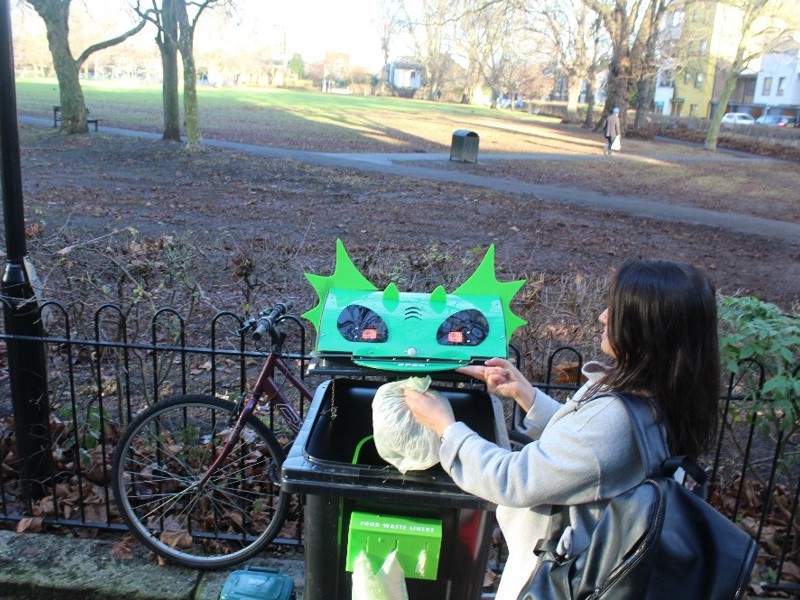A pilot scheme in West London with exciting results has shown one way to significantly boost recycling rates - after a local community designed its own ‘Bin Pal’ there was a 38% increase in food waste recycling.
The ‘Londoners’ Lab’ programme ran for 1 year and was a partnership between Amey, Ferrovial Services, Greater London Authority, University College London and Future Cities Catapult.
It aimed to support the Mayor’s pledge to tackle falling recycling rates in the city, focusing on improving food waste recycling in London’s flats. The Greater London Authority, has a target of a 65% recycling rate by 2030 and Zero Carbon city status for London by 2050.
Food waste is a huge environmental challenge. The UK alone creates seven million tonnes of household food and drink waste, and sending that waste to landfill is especially harmful to the environment. There is political consensus that reducing the amount of landfilled bio-waste is a key policy priority across the UK. In London, the Mayor recognises that processing food waste will play an important role in boosting the city’s recycling and composting rates.
The Londoners’ Lab programme aimed to improve participation in food waste recycling through engaging local residents in designing an intervention that worked for their local community. Using technology and visual elements that raised awareness of the importance of food waste recycling, the aim was to nudge user behaviour towards greater segregation of their waste and recycling of food waste.
The Londoners’ Lab team worked with Ealing Borough Council and a group of local residents in Ealing to discover current best practices and their challenges with recycling food waste. Following workshops with residents, building owners, researchers London’s recycling stakeholders and council representatives, a prototype was developed by a team from University College London. The resulting ‘Bin Pal’ (see picture) was introduced within an Ealing residential community composed of 43 families. The pilot ran for 3 months and during this period the amount of food waste recycling improved by 38%.
Cllr Mik Sabiers, Ealing Council’s Cabinet Member for Environment and Highways said: “We are committed to making it easier for residents to recycle and contribute to a more environmentally friendly, sustainable borough. We have seen a significant boost in rates of food waste recycled in flats involved in this pilot. This is one of the key areas we are targeting for major improvement so we will now look at replicating this in other locations across the borough.”
“At more than 50% Ealing is the top borough in London for recycling rates bar one and we are striving to improve this even further. We are targeting a 60% rate by 2022 and innovative ways of helping residents in flats recycle, such as the ‘Bin Pal’ pilot, should help to play an important part of meeting this ambitious future target.”
Mark Saunders, Director of Ferrovial Services’ Centre of Excellence for Cities, said: “We are pleased with the results of this pilot, which demonstrates the effectiveness of putting local residents at the heart of creating an answer to a recognised urban challenge. We believe that there is opportunity to improve recycling rates further by developing the solution with key stakeholders and scaling it with a bigger community.”
You can find out more about the project is this video.
